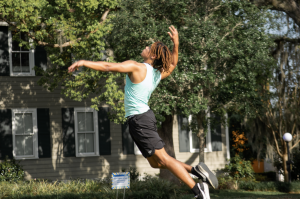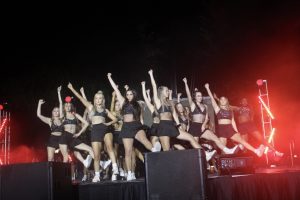Approximately 15 students gave up their Saturday afternoon to become certified Safe- Zone allies. They engaged in an afternoon of learning about and understanding the LGBTQQIPAA (lesbian, gay, bisexual, transgender, questioning, queen, intersexed, pansexual, asexual and ally) community and becoming allies.
Meghan Thomas ’11, Ashley Green ’11, and Dr. J. Scott Hewitt, associate professor of education, facilitated the training session hosted by the Office of Multicultural Affairs. They began the session by ensuring that all participants were in a safe zone and could feel comfortable enough to talk about and express anything they wished. The key to SafeZone training comes from the participants learning from one another, so emphasizing that safe space helped everyone feel comfortable enough to open up and learn.
In order to create a safe zone, we laid down some ground rules to obey throughout the session. This involved ensuring that we would all respect one another’s thoughts and opinions, be open to learning, listen to one another, and to engage ourselves in the activities and sessions ahead.
We then proceeded to talk about the different letters in the “alphabet soup” and define each one. Instead of simply lecturing, however, the facilitators put the responsibility for defining these letters onto the participants. We defined some of the well-known words, such as gay, lesbian, and homophobia. But the training session went beyond that; we opened the doors to defining gender identity, transgender, heterosexism, intersexed and pansexual.
We went around the room with sticky notes and wrote down our perceptions of what each term meant. Many people had a solid understanding of terms, while others had no idea. We discussed each term, and, while we gained a clearer understanding of each, it is important to note that these terms are fluid and ever-changing. Individuals can take these words and use them however they perceive them.
Dean Patrick Powers joined the training to facilitate the next session. He passed around various stories from LGBT students at Rollins, past and present, for us to read aloud. One story discussed feeling scared to be gay on campus due to a recent murder in Orlando in response to the victim’s homosexuality. After hearing all of the stories, we discussed and identified feelings we experienced listening to them: fear, hate, ignorance, sadness and hopelessness. These weighed heavily on the participants since many felt that some of these same feelings are experienced on our campus within the LGBT community.
From hearing the stories of others, we went on to talk about moments in our lives when we felt isolated and different. How did we respond to the situation? Did we have an ally or someone to talk to? Everyone had the chance to tell his or her story in a smaller group, and then a few people related their stories to the larger group. It gave us all the opportunity to listen to what others have experienced and how to make a difference in the future. After such an eye-opening afternoon, we finished by adapting our newfound knowledge into action plans and how we can make a difference on our campus.
We all identified education and awareness opportunities, such as Spectrum events and this semester’s Diversity Dialogues, as key components in creating a less hostile and more friendly environment. Simply talking to people can make a difference, too. Much hostility comes from merely not knowing about the community.
Each participant had the option of becoming an official SafeZone ally. This would entail being part of a SafeZone ally email list, being listed as an ally, and getting stickers identifying themselves as allies. Even though each person has gone through the training, he or she does not have to make the pledge to become an ally. Upon completion of training, each participant received a folder with more in-depth information about being an ally.
The training was a big success. Thomas, Green, and Hewitt did a wonderful job keeping the conversation flowing and framing the conversation for the participants. We all walked away with a new perspective of the world and a lot more friends. The Office of Multicultural Affairs plans to host more training sessions in the upcoming semester, and currently has a special one scheduled for faculty and staff members Jan. 21. For more information, contact the Office of Multicultural Affairs at rluce@rollins.edu.











Be First to Comment